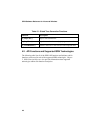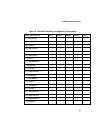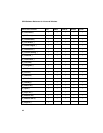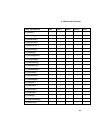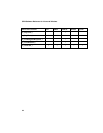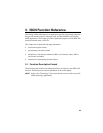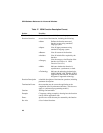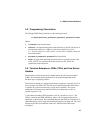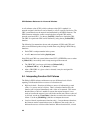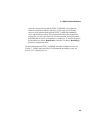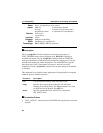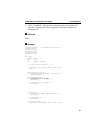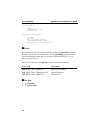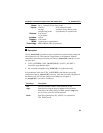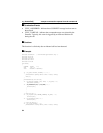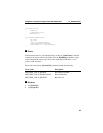ISDN Software Reference for Linux and Windows
48
A call reference value (CRV), which conforms to the Q.931 standard, is a
network-assigned value that is used to identify a call on a specific line device. The
CRV is transmitted over the network and maintained by the ISDN firmware. The
ISDN firmware maintains a table to match the host-assigned CRN and the
network-associated CRV. Use the cc_GetCRN( ) function to obtain the CRN.
The CRV for a particular CRN can be obtained by using the cc_GetNetCRV( )
function.
The following list summarizes the use and assignment of CRNs and CRVs and
offers some additional points to keep in mind when using Dialogic ISDN library
functions:
• Each CRN is a unique number in the system.
• A call is not associated with a physical port.
New CRNs and CRVs are created either when CCEV_OFFERED occurs or when
cc_MakeCall( ) successfully sends a setup message to the network.
• The CRN/CRV is no longer valid after cc_ReleaseCall( ),
cc_ReleaseCallEx( ), or cc_Restart( ) is issued.
• After a CRN/CRV of a given value is released, it may be reassigned for
subsequent calls.
5.4. Interpreting Function Call Failures
The Dialogic ISDN software architecture uses two different levels of fault
reporting to indicate the failure or success of a function call:
• High level check – Function call failure or success is indicated by a result
value: 0 = success and <0 = failure. That is, when the function fails, the
function call is rejected immediately and a value <0 is returned. This means
that the library or driver is unable to execute the request because it is not
ready or because the request is not valid in the current state. When a value <0
is received, use the cc_CauseValue( ) function to retrieve the reason for the
failure. Use the cc_ResultMsg( ) function to interpret the reason.
• Low level check (asynchronous functions only) – In asynchronous functions,
the firmware returns a termination event, in addition to the result value, to
indicate the success or failure of the function. When a function fails, a result



